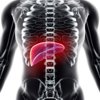Fritextsökning
Artiklar per år
-

Ny chefredaktör på Läkartidningen
Åsa Uhlin har utsetts till ny chefredaktör på Läkartidningen efter avgående Pär Sandell.
-

Radioactive tracer to measure effect of drug towards Crohn’s disease
A radioactive tracer developed by Astra Zeneca and the Karolinska Institutet may play a major role for patients with Crohn's disease. That is the belief of Maria Belvisi at AstraZeneca.
-

The life science strategy – what the industry wants
The process of updating the national life science strategy has begun at the government’s life science office. According to industry stakeholders, Sweden’s competitiveness, the accessibility of health data and the integration of innovation in healthcare are some of the points that are essential to review.
-

”We need compatibility“
Penilla Gunther, founder of Fokus Patient and chair of the European Patient Safety Foundation, hopes that the forthcoming life science strategy will focus on efficient and secure management of patient data and equal access to medicines.
-

Mef Nilbert – cancerutredare med helikoptersyn
Ett ben i kliniken, ett i forskningen. Så har det länge sett ut för Mef Nilbert, överläkare och professor i onkologi, som nyligen fick ett helt nytt uppdrag: att som särskild utredare ta fram en ny nationell cancerstrategi.
-

Radioaktivt spårämne ska visa effekt av läkemedel mot tarmsjukdom
En radioaktiv markör som utvecklats av Astra Zeneca och Karolinska institutet kan spela en stor roll för patienter med Crohns sjukdom. Det menar Maria Belvisi, Astra Zeneca.
-

Anna Törner: ”Orphan Designation – the "petite robe noire" of drug development”
It is easy to cling to various regulatory incentives, like orphan designation, and other expedited pathways, without understanding what they truly mean or whether they are indeed right (or wrong) for the current project, Anna Törner writes in a column.
-

Specific proposals and targets top the universities’ desired priorities
What are the universities’ expectations for the update of the national life science strategy? Life Science Sweden posed the question to representatives from Karolinska Institutet and Sahlgrenska Academy.
-

Första behandlingen mot vanlig leversjukdom godkänd i USA
Efter många år av utveckling har nu för första gången en behandling mot fettlever med leverskada godkänts av det amerikanska läkemedelsverket FDA.
-

Analys av metaboliter hjälp för att skräddarsy behandlingar
Genom att studera kroppens nedbrytningsprodukter, metaboliter, kan behandlingar bättre skräddarsys för patientens specifika behov och förutsättningar. Det säger Dusan Raicevic som jobbar på företaget Metabolon.
-

Forskare närmare att skapa konstgjorda äggceller – ”Väldigt stora risker”
Kan en hudcell förvandlas till ett ägg som kan producera livskraftiga embryon? Nya forskningsframsteg kopplade till tekniken som användes för fåret Dolly kan innebära en revolution inom reproduktionsmedicin, enligt ny studie. Men Niklas Juth, professor i medicinsk etik, är skeptisk.
-

Venom from the deathstalker carries radiopharmaceuticals to the brain
In order to target cancerous brain tumours with radionuclides, the problematic blood-brain barrier must first be crossed. Life Science Sweden has visited a KI researcher who is trialling an unusual approach ‒ using scorpion venom.
-

“Life science is important on a personal level”
From the High Coast to the Government Offices. Jeanette Edblad is a native of Ångermanland, and since September last year, she has been Head and Coordinator of the Government’s Life Science Office.
-

From Valneva to the CEO position at NorthX – “I saw it as a great opportunity”
A new cell therapy for leukaemia, a vaccine in tablet form against cholera, and a proprietary mRNA line with the potential capacity to supply the entire Nordic region with vaccines during a future pandemic. These are some of the projects underway
-

Marie Gårdmark: ”Interchangeable biological medicines – soon in a pharmacy near you?”
”Generic competition is an effective way to push down drug prices, but it has not worked equally well for biosimilars. Biosimilars require more time to gain market share compared to generics, and new biosimilars do not always lead to lower prices” writes
-

“Don’t postpone the transition to IVDR”
Operators who have not yet started to adapt to the requirements of the new EU IVDR regulation are running out of excuses. This is the opinion of Helena Dzojic, Head of Unit at the Swedish Medical Products Agency, who continues to persistently spread her
-

To build trust, one must be able to say “I don’t know” – whether human or AI
Will AI strengthen or break down trust? It depends on whether we can understand and accept its limitations, and our own, writes Sarah Lidé in a column.
-

Blodprov för Alzheimers får tummen upp i studie – ”Skulle kunna innebära en revolution”
Ett enkelt blodprov kan vara lika bra, eller bättre, för att upptäcka Alzheimers sjukdom jämför med de ryggvätsketest som används idag, enligt en ny svensk-amerikansk studie. Nu får Lundaprofessorn Oskar Hansson ett stort anslag för att vidareutveckla blodprovet så att det kan användas i stor skala.
-

Nätverk för kvinnor inom life science startas i Norge
Women in Life Science Norway eller Wild Norway är namnet på ett nytt nätverk. Nätverket syftar till att främja lika möjligheter för kvinnor inom den norska life science-sektorn.
-

KI’s new super machine measures brain activity in real-time – “A very expensive hairdo”
Using brand-new, super-advanced equipment, researchers at Karolinska Institutet can now measure brain activity in real-time, with higher resolution than previously possible. “This opens up fantastic opportunities”, says brain researcher Daniel Lundqvist.
-

Marie Gårdmark: ”Utbytbara biologiska läkemedel snart på ett apotek nära dig?”
”Myndigheten konkluderar nu att ” Baserat på den information som presenteras i rapporten ser Läkemedelsverket inga skäl att avråda från multipel switch”, vilket tyder på att kunskapsläget är ett annat idag än 2017.” Det skriver Marie Gårdmark i en krönika om biosimilarer.
-

The Swedish Research Council gets go-ahead for more long-term funding
Following a government decision, the Swedish Research Council will soon be able to approve ten-year grant periods for funding research infrastructure, which may affect the giant Max IV project, among others.
-

Ozempic may benefit hip replacement surgery
The high-profile drug for type 2 diabetes and weight loss may be beneficial in other areas. One such area is for patients undergoing hip replacement surgery, a new study suggests.
-

Raised millions to develop a treatment for ´butterfly children´
Fragile as a butterfly’s wing – that’s how people living with Epidermolysis Bullosa are usually described. The Lund-based company Xinnate recently raised SEK 100 million in a new share issue to finance the development of a treatment they hope will give